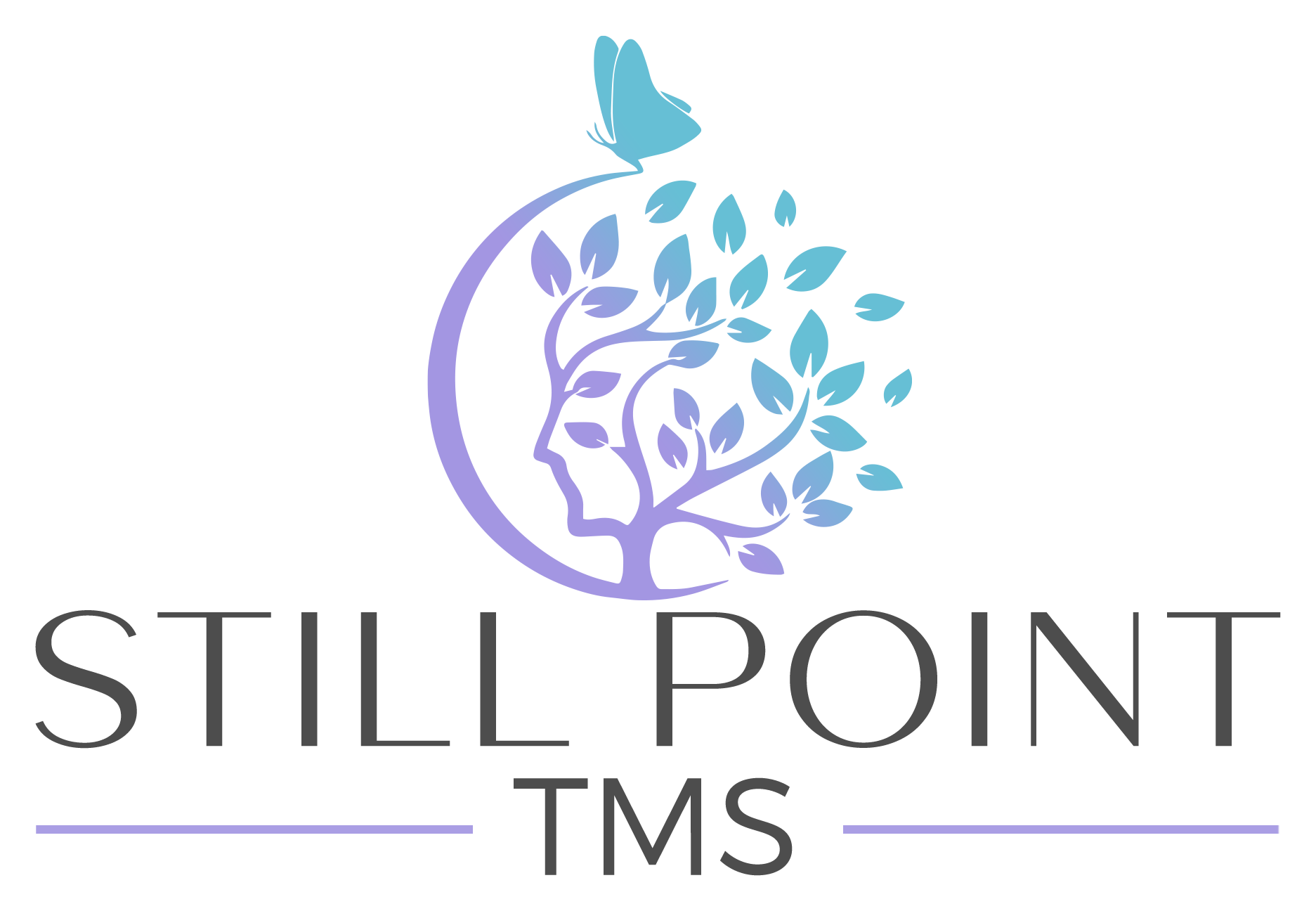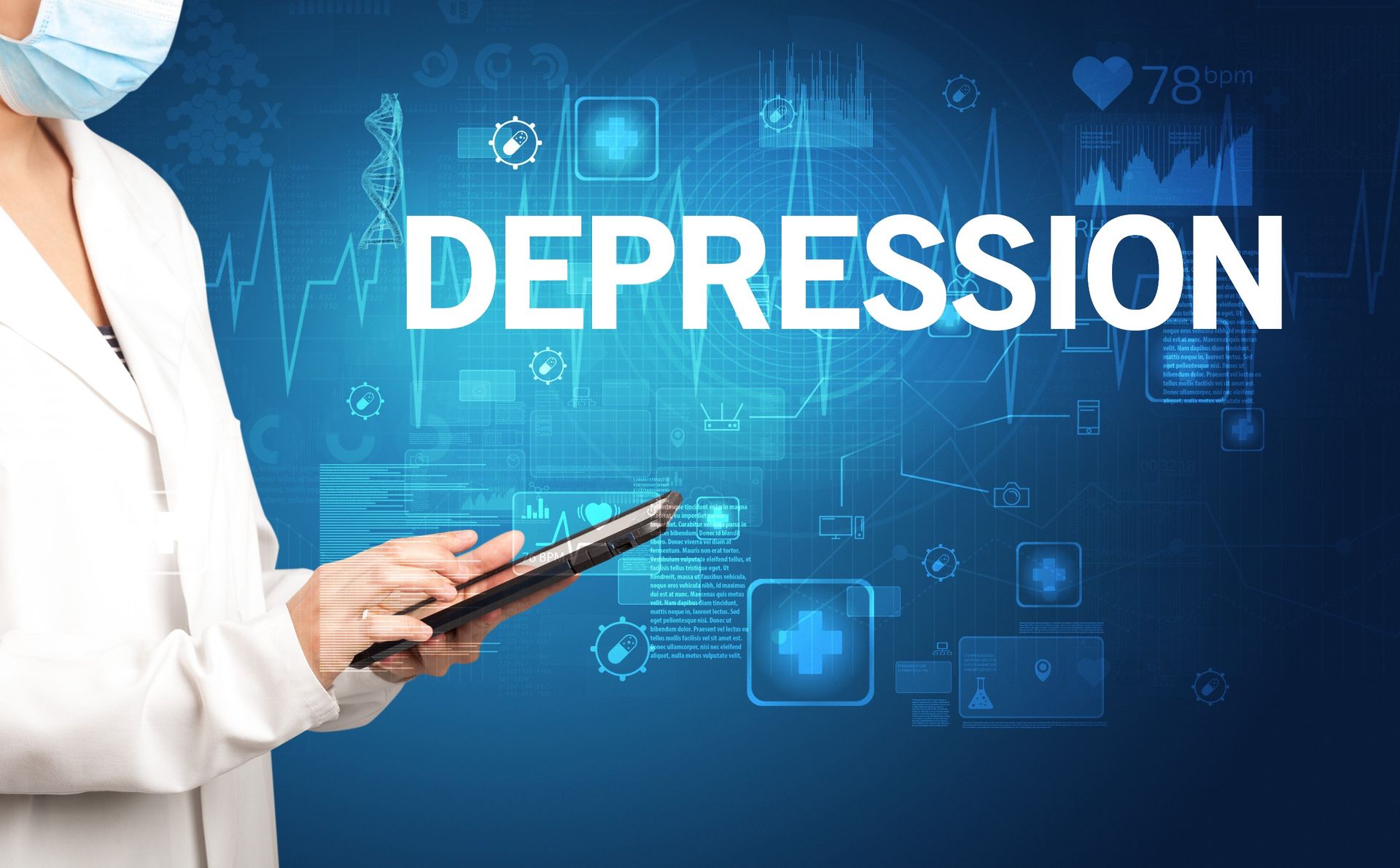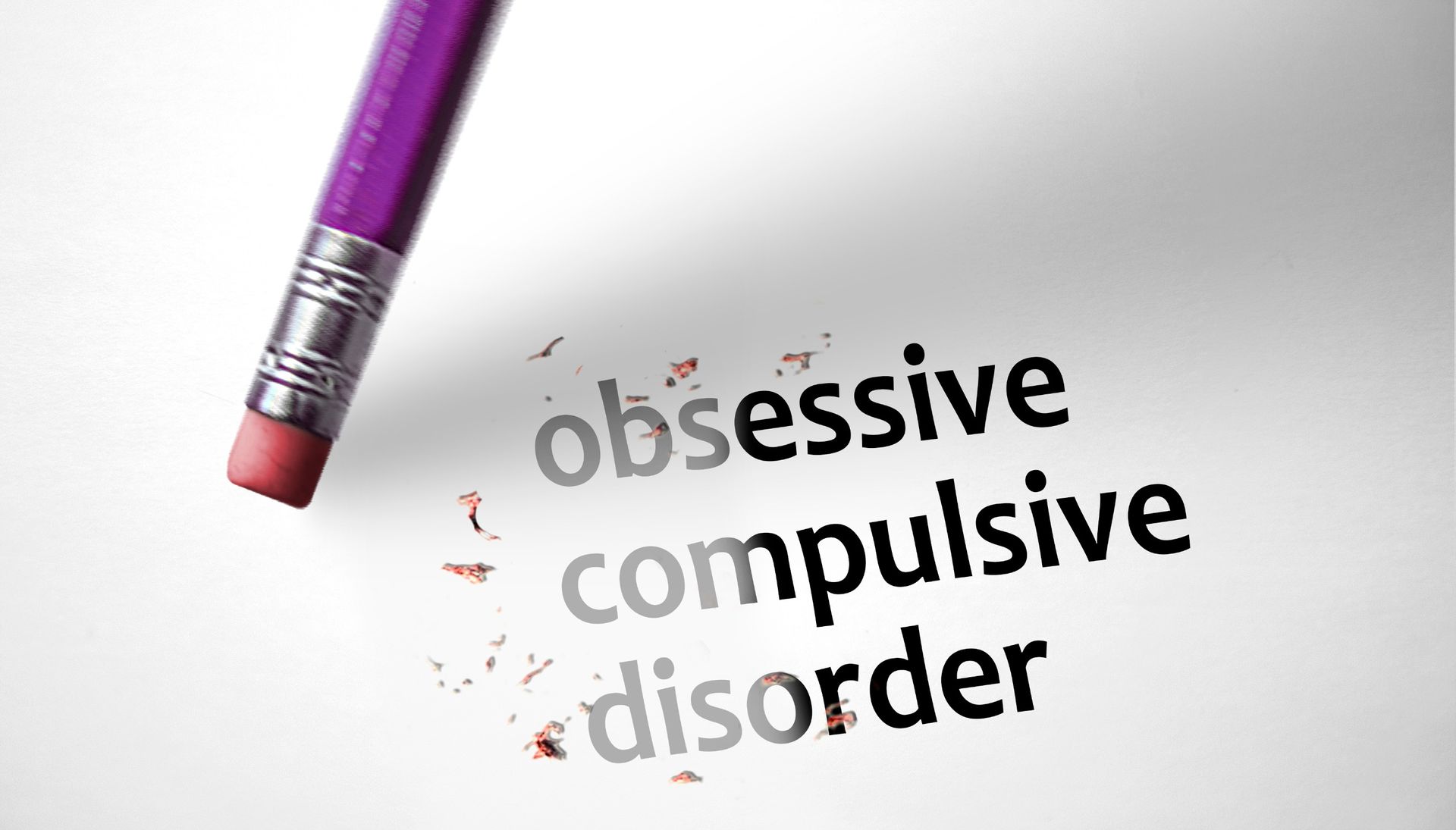103 Pennsylvania S, Charleston, WV 25302
103 Pennsylvania S, Charleston, WV 25302
Non-Pharmacological Depression & Anxiety Therapist in Charleston, WV
Michelle Bez • Sep 04, 2023
Approximately 10% of people in the United States suffer from depression. (my.clevelandclinic.org)
The Holistic Approach or Medication-Free Alternatives
At Still Point TMS, we understand that medication management can work well for many patients but there are several reasons why considering medication-free alternatives for managing depression can be beneficial:
Side effects: Medications used to treat depression often come with a range of potential side effects, including nausea, weight gain, sexual dysfunction, and drowsiness. Opting for medication-free alternatives can help avoid these unwanted side effects. One study showed that around 70% of patients with depression were non-compliant with antidepressants because of concerns about their side effects. (bmjopen.bmj.com)
Individual preferences: Some individuals may prefer to explore non-medication options due to personal beliefs or concerns about relying on medication. They may have a preference for more natural or holistic approaches to managing their mental health.
Holistic approach: Medication-free alternatives often focus on a holistic approach to mental health, addressing various aspects such as lifestyle changes, therapy, and self-care practices. This comprehensive approach can help individuals develop coping skills and make positive changes in their lives beyond just managing symptoms.
Long-term sustainability: Medications may provide temporary relief from depressive symptoms, but they often require continuous use to maintain their effects. Medication-free alternatives, on the other hand, can focus on developing long-term strategies and habits that promote mental well-being and resilience.
Personal empowerment: Engaging in non-medication approaches for managing depression can empower individuals to take an active role in their mental health. It allows them to learn and implement strategies that work best for them, increasing their sense of control and self-efficacy.
Common Non-Pharmacological Treatments
Non-pharmacological treatments for depression are methods that do not involve the use of medications or drugs. They can range from lifestyle changes, such as regular exercise and improved diet, to more intensive therapies, such as cognitive behavioral therapy (CBT), interpersonal therapy (IPT), and even TMS therapy (TMS). These treatments are used to help reduce the symptoms of depression and improve overall mental health.
- Psychotherapy:
Psychotherapy, also known as talk therapy, is a common and effective treatment for depression. A trained therapist can help you explore and address underlying issues that may be contributing to your depression. They can guide you through various techniques such as cognitive-behavioral therapy (CBT) or interpersonal therapy (IPT) to help change negative thought patterns and improve coping strategies.
- Support Groups: Participating in support groups can provide a valuable outlet for individuals struggling with depression. Connecting with others who have similar experiences can offer support, validation, and a sense of belonging. Support groups can also provide a safe space to share challenges and successes, as well as learn coping strategies from others who have faced similar difficulties.
- Exercise: Engaging in regular physical exercise has been shown to have positive effects on mood and overall well-being. Exercise releases endorphins, which are natural mood enhancers. Consider joining a gym or fitness class near Charleston or simply incorporating a daily walk into your routine. Finding an activity that you enjoy can make it easier to stick to an exercise regimen.
- Mindfulness and Meditation: Practicing mindfulness and meditation can help reduce symptoms of depression by promoting a sense of calm and relaxation. Mindfulness involves being present in the moment and non-judgmentally observing thoughts and feelings. Many resources, such as apps and online videos, are available to guide you through mindfulness and meditation exercises.
- Healthy Lifestyle Choices: In addition to exercise, making healthy lifestyle choices can have a positive impact on depression symptoms. This includes maintaining a balanced and nutritious diet, getting enough sleep, and avoiding excessive alcohol or drug use. Prioritizing self-care and engaging in activities you enjoy can also contribute to a sense of well-being.
- Alternative Therapies:
Some individuals find relief from depression symptoms through alternative therapies such as acupuncture, yoga, or massage therapy. These therapies can help promote relaxation, reduce stress, and improve overall emotional well-being. It is important to consult with a qualified professional to ensure these therapies are safe and appropriate for your specific needs.
- TMS Therapy: TMS therapy, or Transcranial Magnetic Stimulation, is a non-invasive treatment for depression offered by Still Point TMS in Charleston West Virginia. TMS therapy works by delivering targeted magnetic pulses to specific areas of the brain that are known to affect mood. TMS is often referred to as "magnet therapy" for depression and it's a simple outpatient procedure that has been FDA-approved and has helped thousands of people who suffer from depression.
What Is Magnet Therapy For Depression?
Magnet therapy is an alternative treatment for depression that uses magnets to stimulate the body’s natural healing abilities. This type of therapy can be used both as a standalone treatment or in combination with other treatments, such as medication and counseling.
The goal of magnet therapy is to bring relief from physical and psychological symptoms associated with depression. It works by increasing the flow of oxygen-rich blood to specific areas of the brain, which are believed to be underactive in individuals suffering from depression. The magnets utilized in this therapy are usually small and powerful, generating electromagnetic fields that can penetrate the skull to reach targeted brain regions.
The theory behind magnet therapy for depression lies in the idea that the electromagnetic fields produced by the magnets can influence the electrical activity and connectivity of neurons in the brain. By doing so, these magnetic fields may help rebalance neural circuits that are disrupted in depression, ultimately alleviating the symptoms.
Exploring TMS Therapy For The Treatment of Depression
Another important factor is the favorable safety profile of TMS therapy. While all medical procedures involve some level of risk, TMS therapy is generally considered safe and well-tolerated. The most common side effect is mild scalp discomfort or headache, usually subsiding quickly after the session. Compared to the potential adverse effects of antidepressant medications, such as weight gain, sexual dysfunction, or gastrointestinal problems, TMS therapy is often seen as a more tolerable and preferable option.
Furthermore, TMS therapy has shown promising efficacy in treating depression. Clinical studies have demonstrated that TMS therapy can significantly reduce depressive symptoms and improve overall mood in individuals with MDD. This therapeutic approach specifically targets the prefrontal cortex, a region of the brain implicated in depression. By modulating activity in this area through magnetic stimulation, TMS therapy aims to restore normal brain function and alleviate depressive symptoms. This targeted approach is particularly beneficial for patients who have not experienced adequate relief from traditional treatment methods or who have difficulty tolerating the side effects of antidepressant medications.
Local To Charleston WV? We Help Patients With Depression
Remember, there is no one-size-fits-all approach to treating depression, and what works for one person may not work for another. With the right support and treatment, it is possible to manage and overcome depression.
If you are seeking a non-pharmacological treatment for depression and are local to Charleston West Virginia, please contact Still Point TMS for a consultation. TMS may provide relief from depression and help you move away from medication and any side effects you may be experiencing. We understand that every person is unique, and that's why we create personalized treatment plans for every patient.

Schedule a Consultation
Local to Charleston West Virginia and need help with depression? Contact Still Point TMS today!
Call Now: 304-915-0084

TMS Therapy Can Help People With
- Depression
- Lack of Joy
- Sadness and Despair
- Low Mood
- Lethargy
- Insomnia
- Oversleeping
- Social Isolation
- Self-Harm
- Substance Abuse
- Suicidal Ideation
- Alcoholism


Ready to Get Started?
Holistic Anxiety Disorder Treatment & Mental Health Services in Charleston, WV
Our commitment is to enhance the mental health of our community and we pledge to support you in your journey by providing a customized treatment plan to help you overcome your struggles and achieve a fulfilling life. At Still Point TMS, our mental health clinic in Charleston West Virginia, we utilize TMS therapy, an exceptional and innovative method to combat treatment-resistant depression. We're dedicated to helping you find the mental well-being you deserve. It’s time.
Or Call: 304-756-5715 for Bez Psychiatric
🙌 Bez Psychiatric Is Now Part of Still Point TMS Therapy 🎉
Navigation
Contact
Or Call: 304-756-5715 for Bez Psychiatric
304-346-9927
MON – FRI: 9am-4pm
SAT – SUN: Closed
103 Pennsylvania S, Charleston, WV 25302







